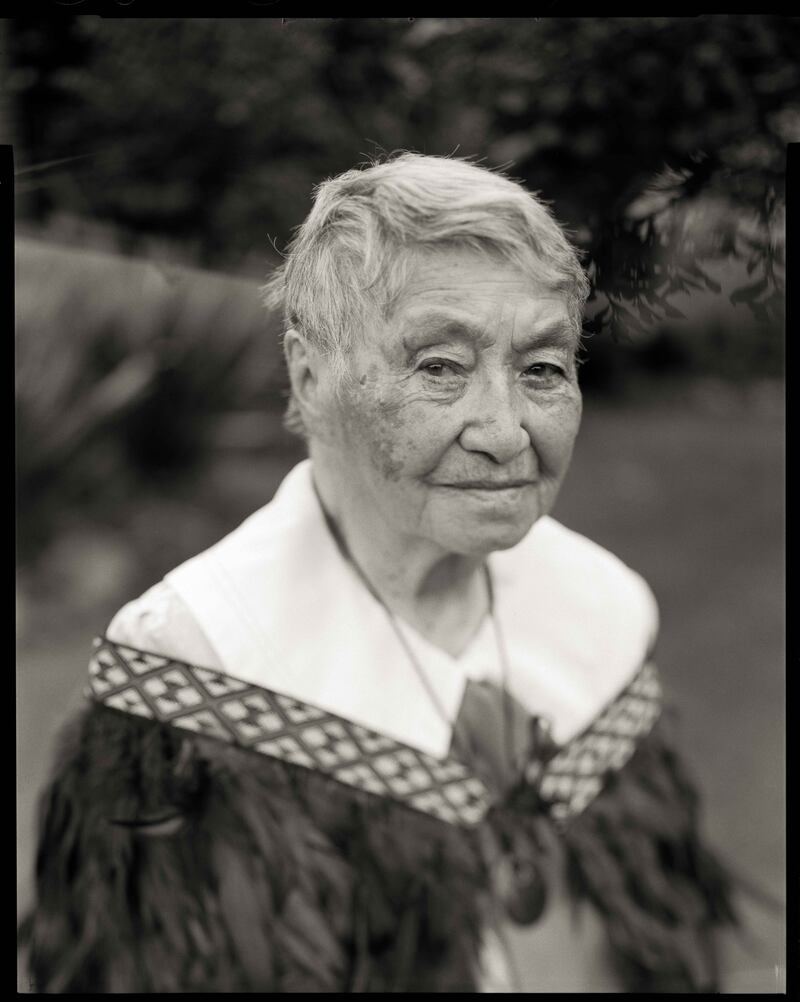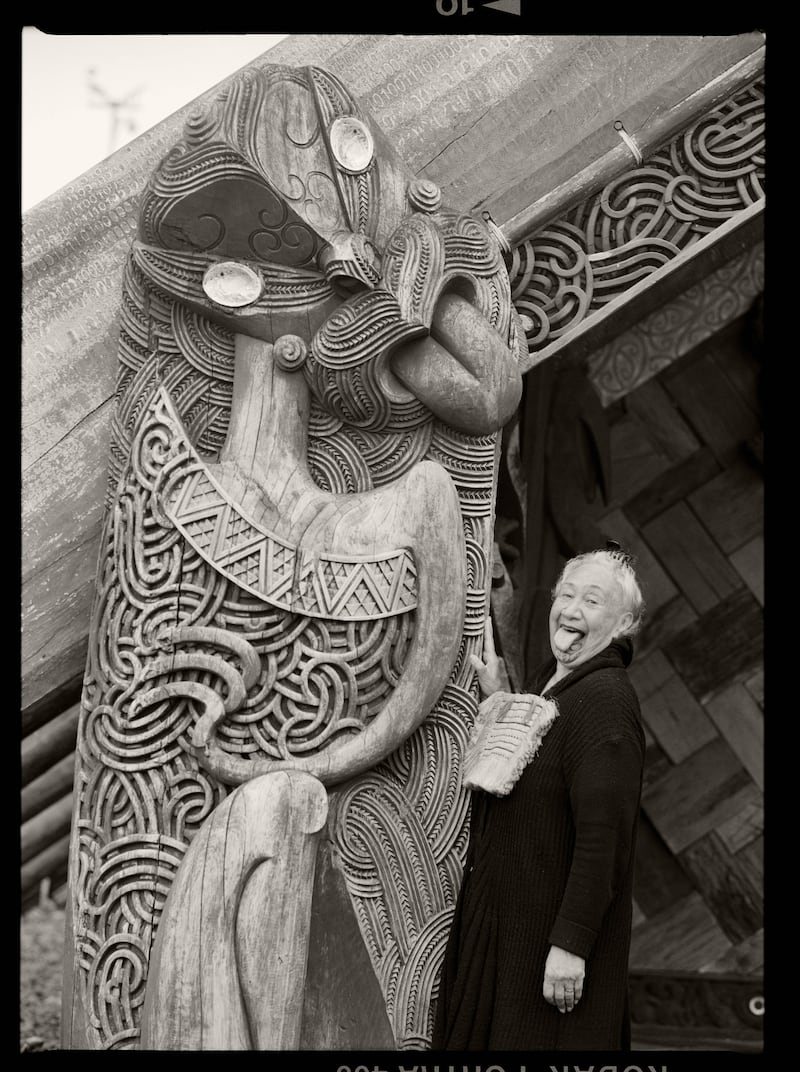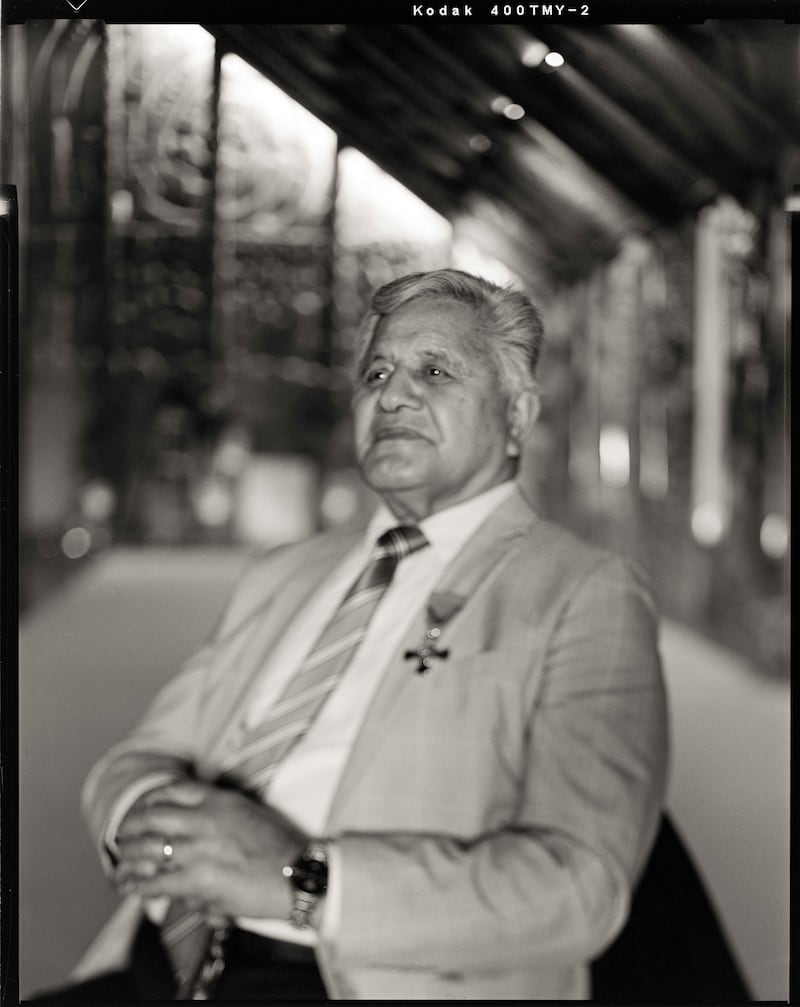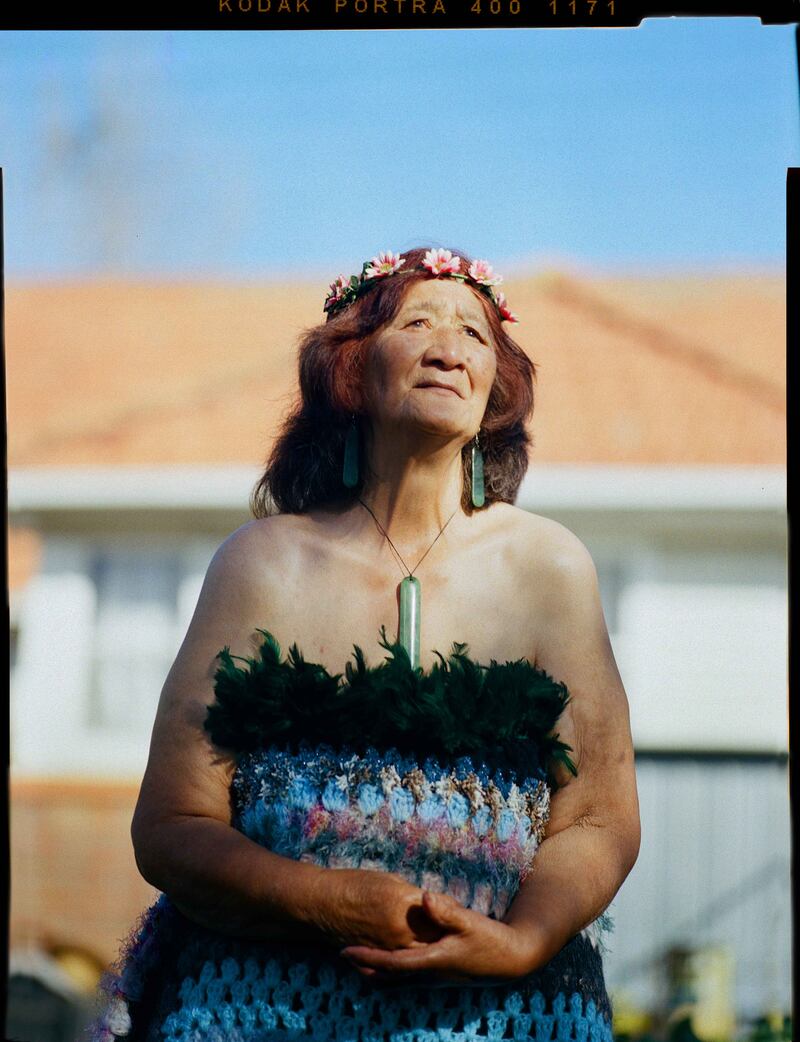A new photography project recording sensitive and precious personal experiences and mātauranga of kaumātua has been launched today in Tāmaki Makaurau.
Kaumātua is a three-year-long project created by photographer Sarah (Hera) Tautuku Orme, of Ngāti Awa, Te Arawa, Ngāti Whākaue, and Ngāti Tarāwhai.
“With this kaupapa, we hope to bring mana to our kaumātua, read what they share, and ignite further kōrero. The aim is that as many people have the opportunity to engage with this project as possible,” Orme says.
The stories and portraits of the first four kaumātua were revealed and celebrated at Te Noho Kotahitanga Marae, Ōwairaka yesterday in Auckland. They include Rānana Paul, of Ngāti Maniapoto and Ngāti Rereahu; Hēni Goldsmith of Ngāti Ranginui and Ngāi Te Rangi; Lynda Toki of Maniapoto and Hare Paniora, of Ngāpuhi.
Some of their experiences include being made to not speak te reo Māori at school in the late 1930s; not getting moko kauae because of not being accepted into society at the time; domestic violence; incarceration; and overcoming the challenge of speaking te reo on the marae.
“Everyone has a story to share. Kaumātua, elders born around the 1940s and earlier, have lived through a lot of societal change in Aotearoa. Kaumātua are pātaka kōrero and we continue to learn from them, moving into the future with their words, soaking up the richness of their kōrero. Kaumātua are healers who share their stories of a past so that it will be remembered,” Orme says.

In Hēni Goldsmith’s excerpt, she shared her experience about being told not to speak te reo in school.
Her expert said,”One day when I was about seven or eight, we were at school and a bus pulled up with a Māori driver [who said to] us kids, in Māori: ‘E tu ngā tamariki Māori e haere ki te waka.’ (Stand up children who are Māori and get onto the bus.) The bus took us to Te Paeroa Native School in Bethlehem, about 20 miles from where we lived. We were no longer allowed to go to our old school. No one explained why and no one was consulted, we were just sent off in another direction. Before we got off the bus, our driver said, ‘You’re not allowed to talk Māori here once you go through the gate. You’ll all get punished for speaking Māori.’ We were all worried because most of us were quite limited with English. We never knew why we were being shipped off. I only found out recently that it was because the Pākehā parents got together to get us out of the school.”

Lynda Toki shared what it was like when her grandmother was influenced to not get a moko kauae, a tradition that had lasted for generations in the whānau, because of the threat of not being accepted into society.
“I grew up around moko kauae – they were everywhere. There is just one generation in my whakapapa that did not get their moko kauae, and that was my grandmother’s, during the 1920s. Eleven of them, including my grandmother, were going through the three-stage process with their tohunga kai tā. After the second stage, they chose not to continue to get their moko kauae, because they would have been “marked” and not accepted into society at that time. They were a generation caught up in the colonial thinking process, which interfered with our tikanga. I feel gutted when I think back to this time–knowing that without this Pākehā interference I would have been part of an unbroken whakapapa of moko kaue,” Toki said in her excerpt.

Of Orme’s work, actor Rena Owen said, “Having the privilege of being photographed by the gifted Sara Orme, I couldn’t think of a better photographer to capture our kaumātuas’ uniqueness. Who Sara is allows one to be vulnerable, which then enables her lense to see and capture deep within”
Kaumātua will be produced as a publication and an exhibition, engaging with the communities that the kaumātua come from. It is intended to be a three-year project to continue photographing and sharing the stories. Additional kaumātua will join for an exhibition at Auckland Central City Library Tāmaki Pātaka Kōrero in 2024.


